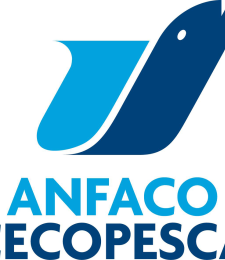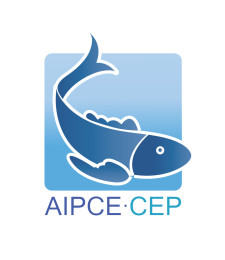Pledges
Almendrave (2021)
Pledges

Publishing organisations:
Editorial team
Relevant countries:
Spain
Organisation types:
Industry Associations and Chambers of Commerce
Next progression check date:
Almendrave is an organisation that represents the principal Spanish exporters of almonds and hazelnuts, constituting 65% of total national exports. The members of ALMENDRAVE have an active interest in the overall sector of nuts at the national, European, and global levels. They are at the forefront of the sector, given that Spain is the world’s second-largest producer of almonds.
Editorial team
Topics
Spain
Industry Associations and Chambers of Commerce
-
CoC aspirational objectives
-
-
1. Healthy, balanced and sustainable diets for all European consumers
-
2. Prevention and reduction of food loss and waste
-
3. A climate - neutral food chain in Europe by 2050
-
4. An optimised circular and resource-efficient food chain in Europe
-
5. Sustained, inclusive and sustainable economic growth, employment and decent work for all
-
6. Sustainable value creation in the European food supply chain through partnership
-
7. Sustainable sourcing in food supply chains
-
Share
ALMENDRAVE supports the Code of Conduct for Responsible Business and Marketing Practices (hereafter, the Code of Conduct), as a key instrument of the European Commission’s From Farm to Fork strategy.
Commitments by aspirational objectives:
ALMENDRAVE conducts projects and initiatives with its partners as well as with the “Frucom” European Association, which supports the goals of the Code of Conduct, including but not limited to:
Promoting and facilitating healthy, balanced, and sustainable diets;
Promoting the consumption of fruits and vegetables, especially nuts;
Preventing and reducing food waste;
Promoting sustainable methods of production;
Creating sustainable value throughout the nut supply chain;
Developing the sector’s environmental footprint to optimise the supply chain and reduce the environmental impact of nut consumption;
Facilitating sustainable supply;
Facilitating sustainable and local trade.
Aspirational objective 1: Healthy, balanced, and sustainable diets for all European consumers, thereby contributing to:
1) Reversing malnutrition and diet-related noncommunicable diseases (NCDs) in the EU;
2) Reducing the environmental footprint of food consumption by 2030.
With the following aspirational targets:
a) Improved food consumption patterns in the EU;
b) A food environment that makes it easier to choose healthy and sustainable diets.
Aspirational objective 2: Prevention and reduction of food loss and waste (at the consumer level, within internal operations, and across value chains)
With the following aspirational target:
A 50% reduction of per capita food waste at the retail and consumer level by 2030 and reduced food losses along the food production and supply chains in the EU.
Aspirational objective 3: A climate-neutral food chain in Europe by 2050
With the following aspirational target:
Reducing net emissions from own operations, contributing to a 55% GHG emission reduction target in the EU food chain by 2030 (following a science-based approach).
Aspirational objective 4: An optimised circular and resource-efficient food chain in Europe
With the following aspirational targets:
a) Improved resource efficiency within own operations, contributing to sustainable, efficient use and management of energy and natural resources in operations by 2030;
b) Improved food and drink packaging sustainability, striving for all packaging towards circularity by 2030.
Aspirational objective 5: Sustained, inclusive, and sustainable economic growth, employment, and decent work for all
With the following aspirational targets:
a) Improved resilience and competitiveness of companies operating at any point along the food value chain by 2030;
b) Quality jobs, skilled workforce, and safe and inclusive workplaces for all.
Aspirational objective 6: Sustainable value creation in the European food supply chain through partn
ership
With the following aspirational targets:
a) Improved resilience and competitiveness of companies operating at any point along the food value chain by 2030;
b) Continued progress towards sustainable production, contributing to sustainable management, efficient use of natural resources by 2030, and improved animal welfare.
Aspirational objective 7: Sustainable sourcing in food supply chains
With the following aspirational targets:
a) Transformed commodity supply chains that do not contribute to deforestation, forest degradation, and destruction of natural habitat and which preserve and protect high-value ecosystems and biodiversity;
b) Improved social performance in (global) food supply chains.
Full detail of the pledge in the provided attachment.
Documents
Comments (0)
See also
-
8
ANFACO-CECOPESCA (2021)
Publishing organisations: ANFACO-CECOPESCA
Relevant countries: Spain
Organisation types: Industry Associations and Chambers of Commerce
Next progression check date:
- Categories
- 2. Prevention and reduction of food loss and waste 3. A climate - neutral food chain in Europe by 2050 4. An optimised circular and resource-efficient food chain in Europe +3 more
-
5
Grupo Apex (2021)
Publishing organisations: Grupo Apex
Relevant countries: Spain
Organisation types: Company with 250 or more employees
Next progression check date:
- Categories
- 2. Prevention and reduction of food loss and waste 3. A climate - neutral food chain in Europe by 2050 4. An optimised circular and resource-efficient food chain in Europe +3 more
-
4
AIPCE CEP (2021)
Publishing organisations: AIPCE CEP
Relevant countries: Belgium
Organisation types: Industry Associations and Chambers of Commerce
Next progression check date:
- Categories
- 2. Prevention and reduction of food loss and waste 3. A climate - neutral food chain in Europe by 2050 4. An optimised circular and resource-efficient food chain in Europe +3 more




